Kadidja Abakar is haunted by the people she left behind, after fleeing her home in Sudan's war-torn Darfur region.
"We saw dead bodies along the way," recalls the mother of six. "The wounded lay in their blood, crying for help. But there was nobody to assist them."
Today, Abakar and her children are safe, after having crossed into eastern Chad last July. Other family members have since joined them at an overcrowded tent camp in the border town of Adre.
But that is their only comfort. Tens of thousands of fellow Sudanese refugees in Adre lack water, shelter and proper hygiene. There is just one latrine for every 300 or more people.
In war-torn Sudan, hunger mounts and hopes wane in war-torn Sudan
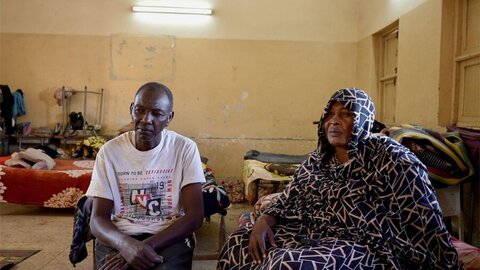
And while the World Food Programme (WFP) has distributed food and nutrition assistance to hundreds of thousands of people arriving here from Sudan, funding cuts and impending rains - cutting off access to remote places - may dramatically shrink that support.
"Only the luckiest have one meal a day," says Abakar, her brightly colored gown contrasting sharply with the desolate desert landscape. "I can't imagine how our situation would be if WFP stopped distributing food in the camp."
The dearth of funds - also faced by other humanitarian partners - is deepening and widening the nearly year-old Sudan crisis. Fighting that erupted and spread from capital Khartoum last April has uprooted nearly 8 million people.
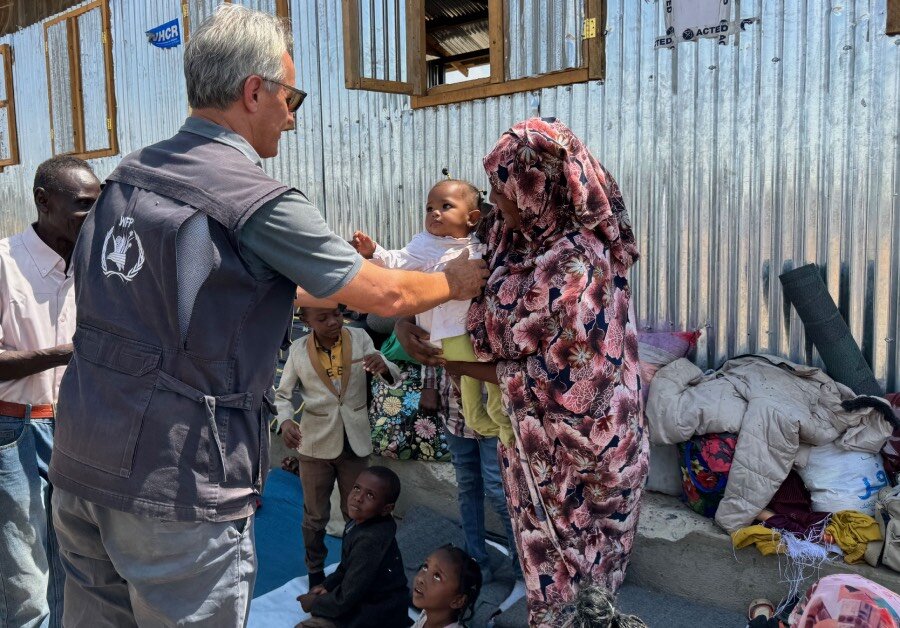
Of those, some 1.8 million have fled to neighboring countries, mostly to Chad and South Sudan. While WFP has mounted a massive humanitarian response, the funding crunch is now forcing us to cut assistance to hundreds of thousands of vulnerable people in both countries.
"The impact of this conflict spans three countries - Sudan, South Sudan and Chad - and has created the world's largest displacement crisis," said WFP Michael Dunford, WFP's Regional Director for Eastern Africa, during a recent visit to the South Sudanese border town of Renk. "The children and women who are crossing to South Sudan or Chad are hungry and arriving with no resources."
Nothing to eat
Chad has seen its refugee population double over the past year, with more than half-a-million people crossing the border from Sudan. Many arrive injured and acutely hungry, with horrific tales of their journeys and the war. Like Abakar, a large chunk come from Darfur, just across the border.
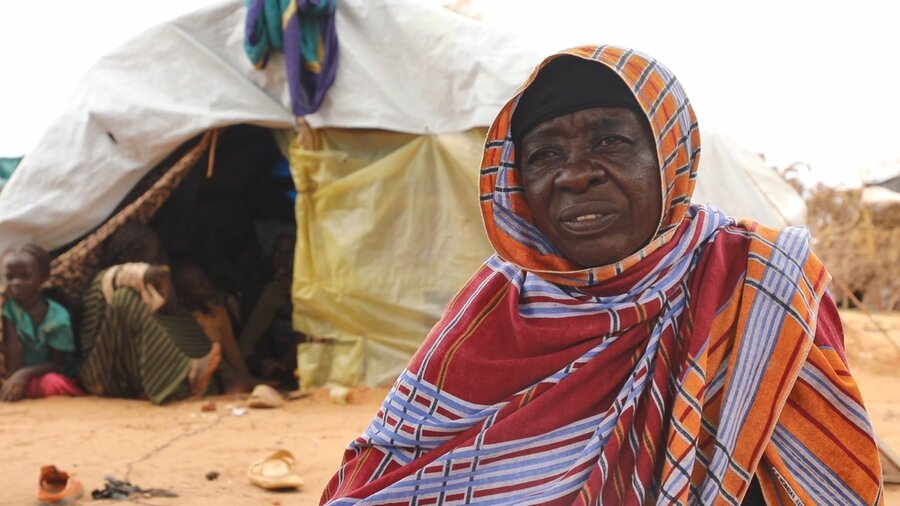
"Armed men hit us and chased us. They burnt our homes and stole all our belongings," says grandmother Macka Adam, who fled the West Darfur city of El-Geneina. Her brother and a cousin died in the unrest. Other family members went missing.
"Until now, we don't know what has happened to them," she says.
WFP distributes cereals, pulses, iodized salt and oil to the new arrivals, as well as specialized nutritious food to young children and pregnant and breastfeeding women. But insufficient financing has forced us to cut food assistance to more than 300,000 hungry people, including longstanding refugees from other parts of Africa. Without new funds, those cuts will affect even more people, including those who fled Sudan.
The consequences could be catastrophic. Already, some 2.9 million people are projected to face acute hunger in Chad during the lean season between harvests this year, expert findings show - the highest level ever recorded for that period. The refugee population in eastern Chad, along with other fragile communities, counts among the most vulnerable.
Funds are needed swiftly so WFP can position food ahead of June rains, which risk cutting off routes to remote communities.
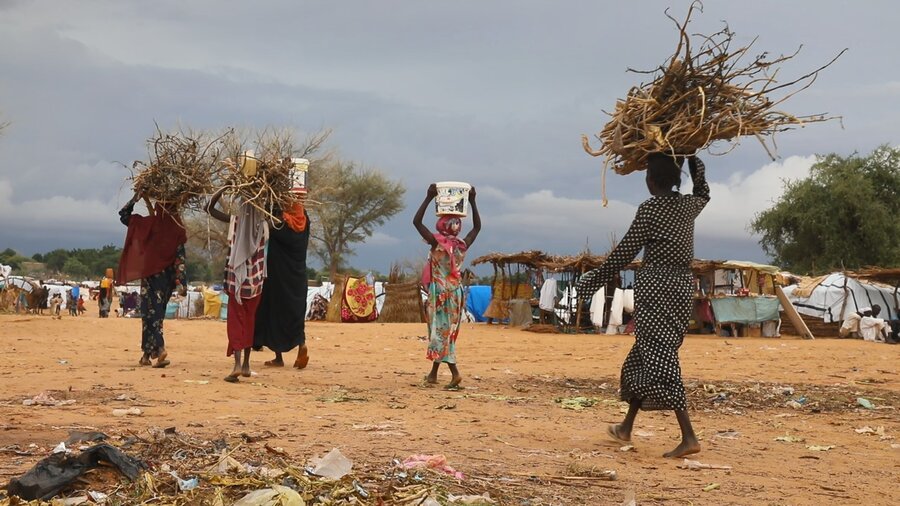
"To avoid disaster, we urgently need US$224 million to build up food stocks before rising rivers cut off roads," said Pierre Honnorat, WFP's Country Director in Chad.
In Adre, refugee Abakar sold the few belongings she arrived with to help feed her large family. But those funds quickly ran out. Even with WFP food assistance, her children cry from hunger. She is weak from nursing her youngest.
"The days when there is nothing to eat are the most difficult," she says.
Fears of a forgotten crisis
The situation is similarly dire in South Sudan. More than half-a-million people have arrived from Sudan since last April. Many are South Sudanese returnees, but increasing numbers are from Sudan.
"What we need is food," says Sudanese refugee Mehida Ibrahim, a mother of three who arrived in Renk, South Sudan's overcrowded border crossing. "The immediate support we need is to eat, to be able to survive."
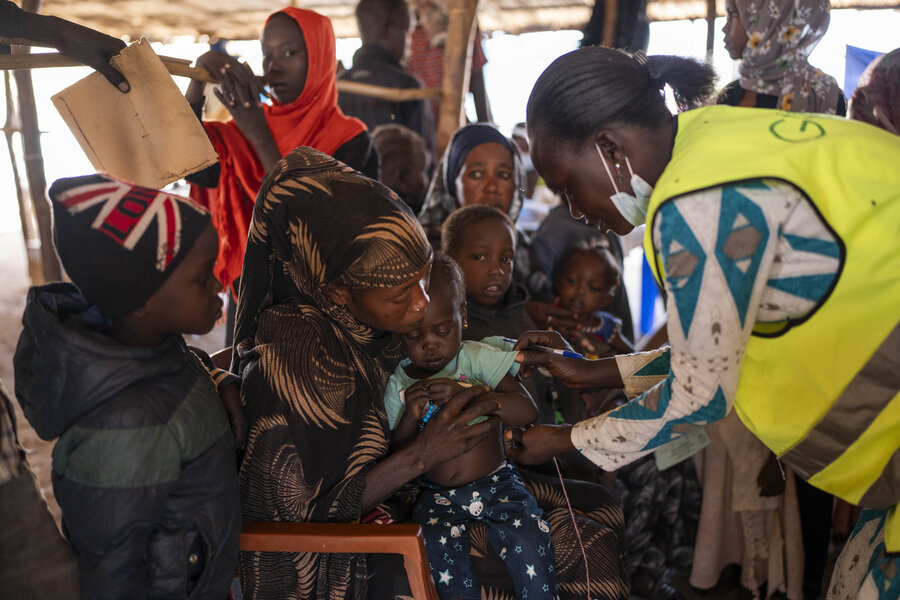
These refugees are arriving in a country where WFP has already slashed food rations, as a funding crunch bites. Almost 60 percent of South Sudan's population faces crisis or worse levels of food insecurity, but we can only support those experiencing the most critical hunger emergency.
As the number of refugees and returnees from Sudan continues to grow, it's putting additional pressure on already-stretched resources. Desperate people are arriving to face a desperate context.
"People crossing the border into South Sudan are exhausted," says Aachal Chand, WFP's head of nutrition and school feeding in South Sudan. "They are really desperate for assistance. They are desperate for a safe place to escape the crisis in Sudan."
Despite the funding constraints, WFP continues to provide fortified biscuits and enough cash assistance for a week, as well as nutrition support for women and young children. But many people are staying in Renk far longer than the week our cash support covers. Malnutrition deepens the longer they stay, running through their resources.
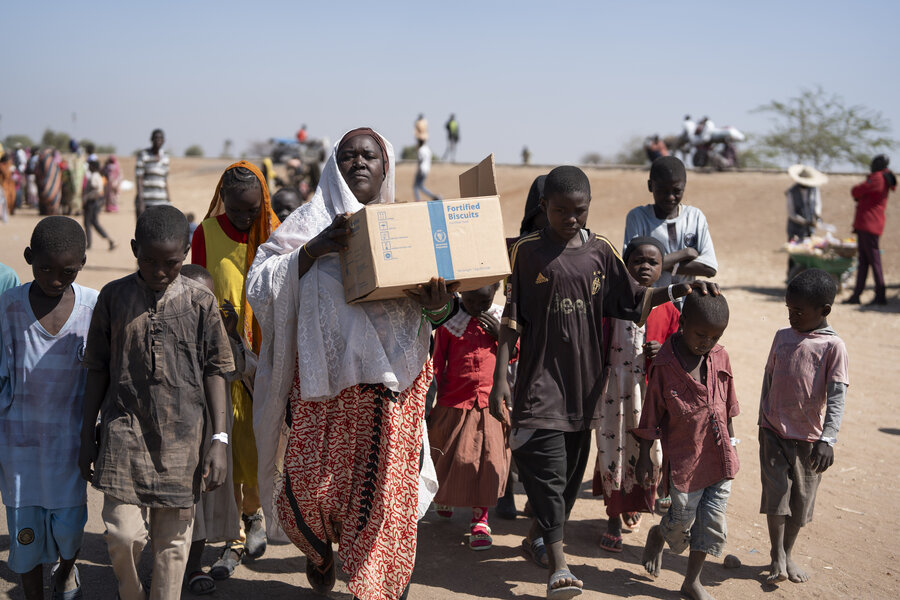
Indeed, the Sudanese arrivals account for more than one-third of those facing catastrophic hunger in South Sudan - even though they make up only 3 percent of the total population.
"Sudan and its impact on South Sudan are becoming forgotten," Chand says of international attention, as other calamities capture news headlines. "We must make sure we do not forget this crisis."
Such fears are also expressed in Chad, where grandmother Macka Adam worries about relatives still caught up in Sudan's fighting - and about the future.
"Even if I've found security and peace in Chad," she says, "my heart is still in Sudan."






